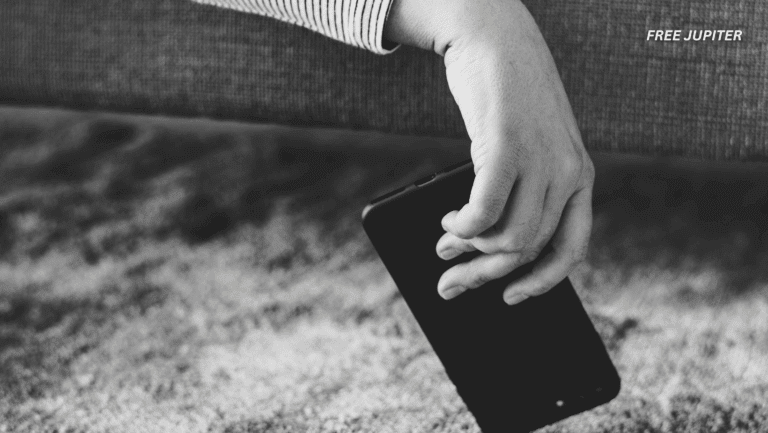Friendly Note: FreeJupiter.com shares general info for curious minds 🌟 Please fact-check all claims—and always check health matters with a professional 💙
Cuddling. Snuggling. Hugging. Holding hands. Whatever you call it, physical affection isn’t just good for the soul—it turns out it might be exactly what your body needs too. According to scientific research, spending just half an hour cuddling with someone you trust can lower your blood pressure, calm your mind, reduce pain, and even strengthen your heart.
Sounds almost too good to be true, right? Let’s unpack what’s actually going on behind the scenes when you’re locked in a cozy embrace.
Your Brain on Cuddles: The Magic of Oxytocin
Cuddling kicks off a fascinating chain reaction inside your body, starting with the release of a hormone called oxytocin. Often referred to as the “love hormone” or “cuddle chemical,” oxytocin is the brain’s way of saying, “Hey, you’re safe here. Relax.”
This hormone is typically released when we feel emotionally connected to someone—through hugging, touching, eye contact, or even hearing a soothing voice. It floods your system with a sense of calm and warmth. That’s why cuddling can feel so comforting, even on a stressful day.
But oxytocin isn’t just about warm fuzzies. It’s actually a powerful biological tool.
Cortisol vs. Oxytocin: The Stress Showdown
Stress activates another hormone in your body: cortisol. Think of cortisol as your internal alarm system. It’s what tells you to stay alert during danger. But when cortisol hangs around too long—because of work pressure, anxiety, sleeplessness, or just modern life in general—it can do serious damage. High cortisol levels are linked to heart disease, weakened immunity, digestive issues, and chronic fatigue.
That’s where cuddling comes in like a superhero in soft pajamas.
Oxytocin counters the effects of cortisol by telling your nervous system to chill out. It literally helps lower your heart rate and blood pressure, reducing the strain on your cardiovascular system. Your blood vessels relax. Your breathing slows. You feel grounded, even if everything else around you is chaotic.
Read more: Simple Breathing Practice Found to Improve Emotional Control, Study Says
The Heart of the Matter: Cuddling and Cardiovascular Health
Let’s get specific: lower blood pressure means your heart doesn’t have to work as hard to pump blood. That reduces wear and tear on your arteries over time. It’s like giving your heart a nap, while you’re busy spooning.
Some research suggests that women might experience even stronger cardiovascular benefits from cuddling than men—possibly due to higher natural sensitivity to oxytocin. But this isn’t an exclusive club. Men, women, non-binary folks, kids, the elderly—everyone can benefit from the cardiovascular perks of affection.
It doesn’t even have to be romantic. The emotional bond is what matters. A 30-minute cuddle with your toddler, your dog, or even your best friend during movie night? That still counts.
Natural Painkiller: How Touch Can Ease Discomfort
Here’s something surprising: oxytocin doesn’t just make you feel good emotionally. It also reduces physical pain.
It works by interacting with the brain’s pain control centers. The sensation of being held or touched with care can dull your perception of pain, sometimes dramatically. This is why touch therapy is often used in hospitals, particularly with newborns, patients with chronic illness, or those in palliative care.
Scientists are currently studying oxytocin as a possible treatment for everything from migraines to fibromyalgia. But for now, you don’t need a prescription—just a hug will do.
Beyond Biology: The Emotional and Mental Boost
While the physical perks are great, let’s not forget the emotional impact. Cuddling has a way of anchoring us in the moment, pulling us out of our spiraling thoughts and into a state of connection. And that connection—feeling truly seen and supported—is something our brains are wired to crave.
Studies show that people who experience regular physical affection tend to report:
- Fewer symptoms of depression
- Lower levels of anxiety
- Greater life satisfaction
- More secure attachments in relationships
- Better sleep quality
That last one is a big deal. Cuddling before bed can activate your parasympathetic nervous system (the one that says, “It’s time to rest now”), helping you fall asleep faster and stay asleep longer.
Read more: What You Need To Avoid If You Have High Blood Pressure, According to Dietitians
It’s Not Just Romantic—All Kinds of Touch Matter
When we say cuddling is good for you, we don’t just mean spooning with your partner during a Netflix binge. Physical affection in any healthy form counts.
- Hugging your child before school
- Stroking your pet as they curl in your lap
- Holding your elderly parent’s hand during a quiet moment
- Getting a massage from a friend or therapist
- Even skin-to-skin contact with a baby
These gentle acts of closeness remind the body that it’s not alone—that it’s safe and connected. And in a world where isolation and overstimulation often go hand in hand, that reminder can be deeply healing.
The 30-Minute Cuddle Challenge (Yes, It’s a Thing)
If you’re curious, try it for yourself: dedicate 30 minutes to physical connection every day for a week. It doesn’t have to be in one go—10 minutes here, 5 minutes there. Just make a conscious effort to be present, physically and emotionally, with someone you trust.
You might be surprised by how much calmer, more grounded, and even healthier you feel by the end of the week.
No One to Cuddle? You’ve Still Got Options
Let’s be real—not everyone has a cuddly companion on demand. If that’s the case, don’t worry. There are still ways to stimulate oxytocin and bring that calm, cozy vibe into your day:
- Self-touch and self-soothing: Placing your hand over your heart or hugging a weighted blanket can calm your system.
- Cuddling with pets: Science shows petting a dog or cat boosts oxytocin too.
- Mindfulness and breathwork: Deep breathing exercises increase oxytocin production.
- Acts of kindness: Giving someone a compliment or helping a neighbor can trigger emotional warmth and release oxytocin.
- Laughter and bonding: Even a shared laugh with a friend can release feel-good chemicals.
Read more: Scientists Say That The Heart Operates On Its Own Largely Independent of the Brain
Final Thoughts: Hugs, Health, and the Power of Connection
In a society that often prizes productivity over presence, cuddling might seem like a luxury. But research—and thousands of years of human bonding—tell us it’s not just nice. It’s necessary.
Cuddling isn’t about weakness or neediness. It’s about tapping into something deeply human: our capacity to connect, to comfort, and to heal. Whether you’re a hugger or not, know this—your body thrives on closeness. And sometimes, a simple embrace can be more powerful than any medicine.
So, go ahead. Snuggle up. Hug tight. Hold hands. Let your heart thank you for it later.
Disclaimer: The information in this article is for general informational purposes only and is not medical advice. We are not doctors, and this website is run as a family hobby project. Always consult a qualified healthcare professional before making decisions about your health. Please fact-check any claims and use this content as a starting point, not a substitute for professional guidance.










